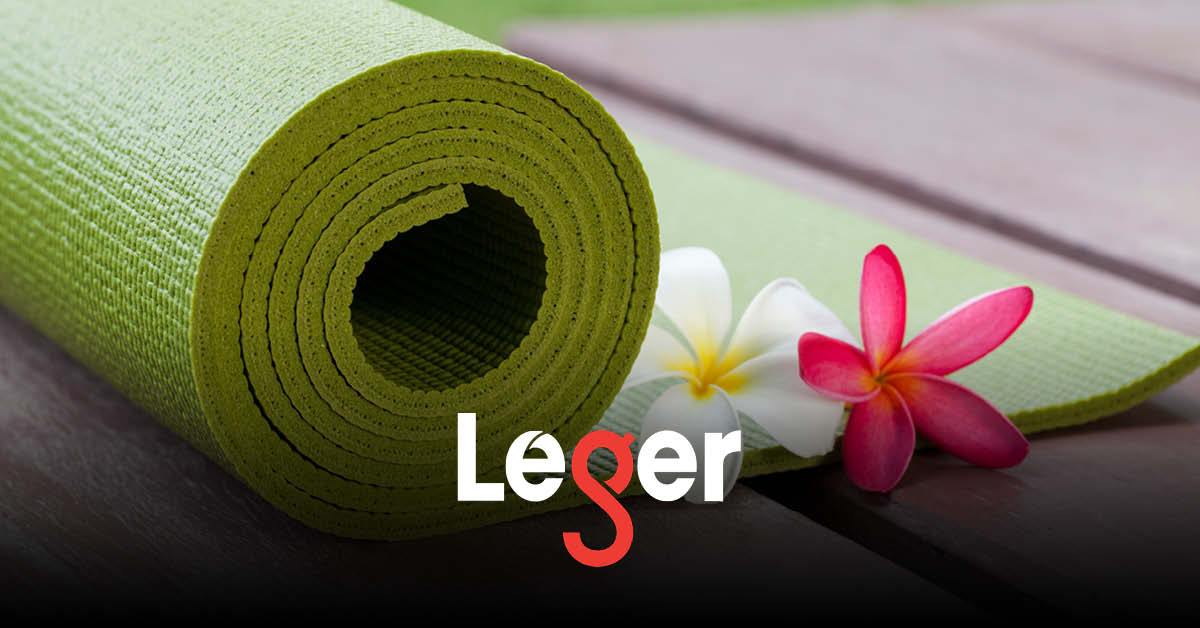It’s no surprise that when people think about health and wellness, things like vitamins and supplements quickly come to mind. But how about technology? Or a simple water bottle or even sunshine? Are those things that most brands consider? A new study by Leger suggests that it’s time for brands to take a fresh look at what health and wellness means and potentially consider innovating for today’s consumer.
Consumer attitudes toward health and wellness have evolved. In 2023, the reasons consumers want to maintain their health and wellness – and the resources they use – are more holistic than ever. Instead of simply thinking about diet and exercise, today’s consumers are thinking about wearables, water bottles, and anything plant-based, stress-relieving or sleep-supporting.
As part of our 2023 Health and Wellness Tool Kit, we asked members of our proprietary 360 Health and Wellness Community to tell us about their evolving attitudes toward health and wellness. The results might surprise you.
Promoting physical health is not enough, as consumers’ goals focus more on “whole health”.
75% of consumers are focused on their physical health. But nearly half or more are also focused on other areas of health.
• 65% are focused on emotional health.
• 54% are focused on spiritual health.
• 49% are focused on their social health.
Consumers’ goals for 2023 reflect these wider areas of focus. 53% are looking for better sleep and 52% want to relax and re-center. These findings indicate that brands should appeal to consumer’s goals of practicing daily “whole health”.
The most popular health and wellness tools and resources are very “everyday”.
We asked what resources or tools consumers plan to use to maintain their overall health and wellbeing in the upcoming weeks or months. Interestingly, everyday items and habits topped the list:
- 50% use their reusable water bottle.
- 45% use free weights.
- 47% consider friend/family time a resource for health and wellness.
- 45% consider sunshine a resource for health and wellness.
- 48% use their computer/tablet as a health and wellness resource.
Vitamins and supplements also remain popular, with 71% of consumers saying they incorporate vitamins into their routine, and 42% are using supplements.
Food, beverages and supplements are increasingly “medicine” as part of the daily health and wellness routine.
Sleep support and stress-relieving properties have been popular for a few years, and these trends continue to gain momentum. This is a shift from consumers wondering what is in products to instead asking how the product promotes greater health benefits. Take for example Confidence, a drink that is claimed to be “a sugar-free, zero-calorie beverage infused with scientifically proven adaptogens formulated to give users confidence.” This was just one of many beverages at this year’s Natural Products Expo West that uses supplements or vitamins to promote mood or improve stress relief.
What’s trending for supplements is also evolving. Collagen, magnesium, mushrooms and gummies are all gaining popularity and consumers are seeking vegan ingredients and sustainable packaging. Magnesium and mushrooms are good examples of the consumer trend to seek aids to promote stress relief and sleep support.
Technology is here to stay as part of routine health and wellness practices.
Our study found that 41% of consumers plan to purchase a tech device to support their health and wellbeing in the next 12 months. While it is no surprise that 45% say they plan to add wearable wristwear such as an Apple Watch or Fitbit, other tech items are also gaining in popularity. For example, consider these more out-of-the-box health tech items that consumers say they plan to use this year:
- 21% plan to use a smart water bottle (that connects to an app).
- 20% plan to use an air purifier.
- 18% plan to use a smart cooking appliance.
Cooking, hiking, and reading are all activities that our study found that consumers regularly participate in, and more than ¾ feel they live and work in a healthy environment. With that in mind, it’s no wonder that “smart” technology is becoming a part of those daily healthy habits that support mental, social and emotional health.
About the 360 Health and Wellness Community
Since 2012, Leger has been leading brands in the natural, organic, health and wellness industries. Leger’s research solutions include the proprietary 360 Health and Wellness Community.
The 360 Health and Wellness Community is comprised of pre-qualified respondents with varied interests in better-for-you products. The advantage of leveraging our 360 Health and Wellness community is quicker field times at a lesser cost and the ability to access your target health-minded consumers. Over the past ten years, this resource has saved Leger’s clients tens of thousands of dollars on primary research studies, and it supports both quantitative and qualitative methods. To learn how to leverage the 360 Health and Wellness Community for your brand, contact us at solutions@leger360.com.


